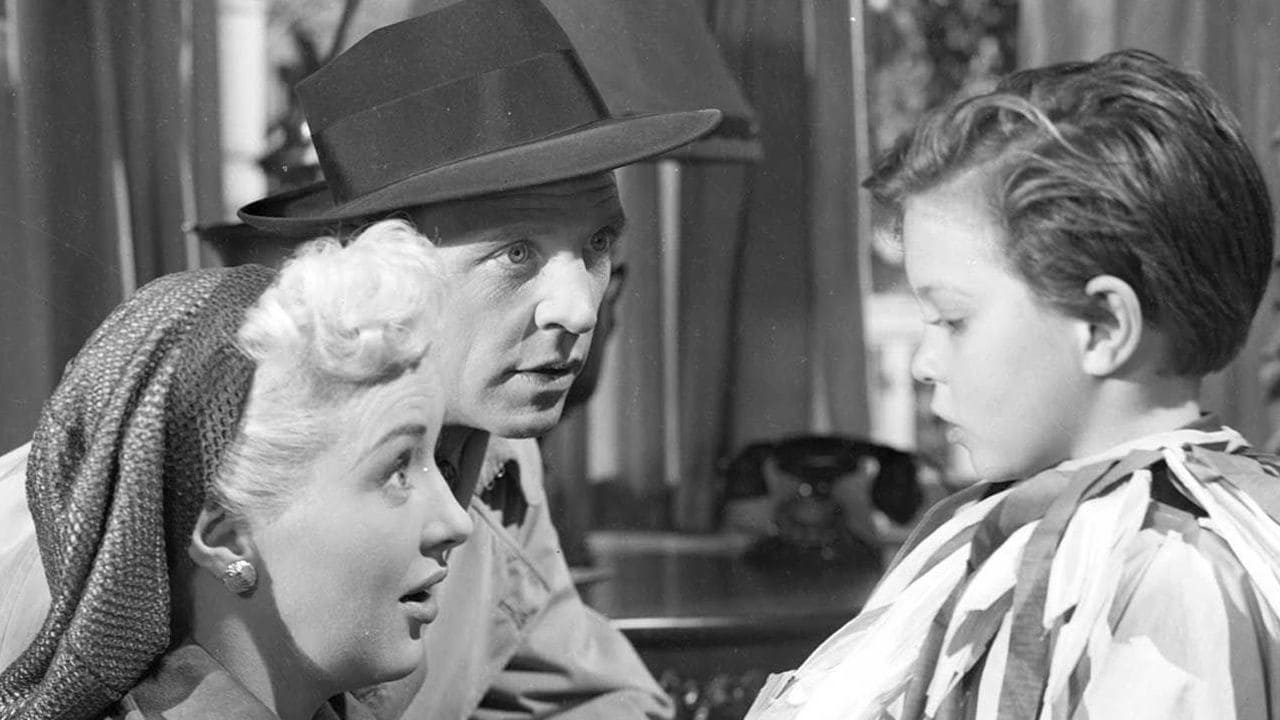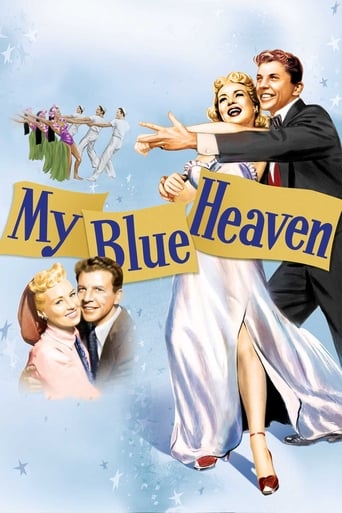

When a movie has you begging for it to end not even half way through it's pure crap. We've all seen this movie and this characters millions of times, nothing new in it. Don't waste your time.
... View MoreIt was OK. I don't see why everyone loves it so much. It wasn't very smart or deep or well-directed.
... View MoreIt is a whirlwind of delight --- attractive actors, stunning couture, spectacular sets and outrageous parties.
... View MoreThe thing I enjoyed most about the film is the fact that it doesn't shy away from being a super-sized-cliche;
... View MoreEven sixty-five years ago this would probably have seemed like a tail- end example of the great late thirties and forties Fox musicals turned out by Fox and a 'resident' team including Alice Fay, Don Ameche, John Payne, Carmen Miranda, Tyrone Power and Betty Grable, who succeeded Alice Faye as Queen of the Lot and was herself succeeded by Marilyn Monroe. Watching it today the overall impression is of s popular genre running out of steam. Harold Arlen's score is lacklustre by his standards though he would turn out A Star Is Born four years later. One of the most interesting segments is the Friendly Islands number, a parody of South Pacific (then in its second year on Broadway) in which Mitzi Gaynor - in her first feature film - actually sings the words South Pacific, and would, of course, go on to play the lead in the film version one decade later. David Wayne is probably the best thing in it and certainly gets the lion's share of the laughs.
... View MoreOne of 4 films Grable made with favorite male costar Dan Dailey. They made a perfect 'A' team with their vaudevillian broad entertainment talents. Her previous male costars, with matinée idol looks, could sometimes sing acceptably, do social dancing and a bit of comedy, but only Dailey could keep up with Betty in the dance routine department and match her comedic talents.This made less necessary the inclusion of supporting specialty dancers, such as the Nicholas Brothers, and multitalented supporting entertainers of either sex, such as Carmen Miranda, Charlotte Greenwood,Jack Oakie and Cesar Romero, which were standard in her films of the early '40s. Nonetheless, young newcomer Mitzi Gaynor is featured several times as a dancer-singer and girl on the make for the affections of Dan. She and Dan are featured in a sexy sophisticated dance routine while singing "Live Hard, Work Hard, Love Hard".Cleverly, Betty is watching this performance at home on her TV, and joins in, with the implication that this girl had better watch out if she makes a play for Dan(as she does). In this film, children, specifically infants, become the main focus of the melodramatic elements, rather than the on again, off again, romantic and professional relations of the stars, which was the usual source of melodrama in Betty's other musicals. As the commentary version of the 2006 DVD says, babies were an especially appropriate topic at this time, with the post-war baby boom. The periodic topic of children being an income tax deduction related to the increased income taxes following WWII.The unusual topics, especially for a musical of that period, of miscarriage and the trials of adopting a child, are featured in the melodrama. As was often the case for the romantic and professional ups and downs in previous Grable films, the ups and downs of acquiring a baby get overblown and a bit tedious.Throughout much of the film, Betty's desire to interact with an infant is frustrated by the hazard of stress-induced miscarriage, the excessive legal complications involved in adopting a child, and a very bossy nurse maid, who considers Betty too inexperienced to care properly for an infant.These problems are finally resolved in a madcap ending, thus justifying the title and theme song. As a counterweight to their frustrating experiences in trying to acquire a child of their own, they have a good time entertaining the kids of a friend with their Halloween skit. As in the later MGM musical "Always Fair Weather", the emerging competing medium of TV is incorporated into the story. Again, the often inane TV commercials are parodied, with Mitzi serving as the presenter. Anachronistically, TV pictures are presented as being in color, presumably to fit in with the rest of this color production. This was several years before the earliest color TY broadcasts, and at least a decade before color TVs were common.The "Friendly Islands" musical routine clearly is a take-off of the then smash Broadway hit "South Pacific", with Dailey parodying the operatic singing style of Ezio Pinza(duplicated by Rossano Brazzi in the later film version) and Betty sporting a wild bird-like outfit and brunette wig in the later portion, to accompany a wild dance, which Dailey joins. Reminded me more of an Aztec or African dance. Having previously played a caucasian who could dance the hula on a small South Seas island("Song of the Islands"), Betty's performance could also be interpreted as an extension of her performance in that film. In the last, long, musical number: "Don't Rock the Boat, Dear", Betty and Dan cavort on a ship in a rocky sea, symbolically reaffirming their devotion to each other. These two performances, along with the "Live Hard, Work Hard, Love Hard" number were the musical highlights for me.
... View MorePopular radio-program duo in New York City, a chummy married couple about to make that transition to television, have troubles adopting a baby. Colorful Betty Grable vehicle weighted down with musical chaos. Granted, "My Blue Heaven" is a 20th Century-Fox musical--and anyone going into it should rightfully expect lots of singing and hoofing--but here the story is far more substantial than the song numbers, which simply get in the way. Screenwriters Claude Binyon and Lamar Trotti, working from S.K. Lauren's story "Stork Don't Bring Babies", tentatively touch upon several topical issues (both satiric and dramatic) which are not explored with any depth. The sudden boom in television (and its impact on radio), the perils of a working mother who leaves her job to be with her child, and the reluctance of adoption agencies to assign babies with those "constantly divorcing" show-biz couples are all products for a satisfying comedy-drama. Grable and Dan Dailey are a lot of fun on the dance-floor, but this glossy product could actually use less pussyfooting around and more narrative heart. It's a feel-good movie, all right, but a picture for its time and not for the ages. **1/2 from ****
... View MoreWonderful Bette Grable and Dan Dailey fanfare dealing with a musical couple's hard luck in having their own child. They are forced to resort to adoption when a traffic accident causes the loss of her unborn child. We then see unscrupulous adoption procedures and other mayhem preventing this couple from having a child of their own.The couple do a routine on television and Dailey along with Grable show they could still sing and dance at their best. In a brief role, Mitzi Gaynor, who would play Daley's daughter 4 years later in "There's No Business Like Showbusiness," turns up as a fellow dancer who is ready to flirt and take Daley away from Gable.The wonderful is ending but we expected that. In such film predicaments, they usually do just that.
... View More